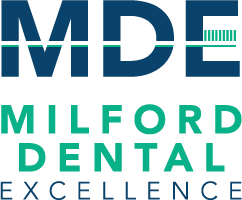When looking for a new dentist, you might encounter phrases like general, family, or cosmetic dentistry. Dentists may be orthodontists, endodontists, or periodontists, etc. Here’s a quick look at these dental terms and the different types of dentists.
Dentistry is “the evaluation, diagnosis, prevention and/or treatment (nonsurgical, surgical or related procedures) of diseases, disorders and/or conditions of the oral cavity, maxillofacial area and/or the adjacent and associated structures and their impact on the human body,” as defined by American Dental Association (ADA). Basically, dentists are practitioners who focus on problems of the mouth and surrounding areas.
Types of Dentistry
General Dentistry
General dentistry is focused primarily on preventive procedures, including diagnostic imaging, cleaning, and patient counseling. General dentists can treat most dental conditions, and have proficiency with almost all treatments. They could choose to focus on one particular area of dentistry, however.
In the United States, eighty percent of dentists are general dentists, making them the majority of all dentists. General dentists provide various types of diagnostic, cosmetic, preventive, and restorative services to ensure the continued oral health of their patients. To practice general dentistry a person needs to get a specialized education and receive a Doctor of Dental Surgery or Doctor of Dental Medicine degree from a recognized dental college.
Family Dentistry
Family dentistry is a term used in instances where dental care is provided to all members of a family, whatever their age is. These dentists provide treatment for typical dental ailments which can affect you during any point in your life.
Cosmetic Dentistry
Rather than helping the functional aspect of the gums, teeth and bite, cosmetic dentistry involves cosmetic procedures that improve the aesthetic appearance of your smile. It mainly involves the look of a smile, such as the shape, color, and size of the teeth. Cosmetic treatments include things such as teeth whitening, reshaping, straightening, bridging, gum lifting, as well as installing veneers and implants.
Different Types of Dentists
A dentist can go beyond general dentistry to become a specialist by receiving additional education and training. Below are what these dental specialists do.
Endodontist – Root canal therapy specialists. They are knowledgable on tooth pulp, nerves, and blood vessels.
Orthodontist – Responsible for installing braces, clear aligners, mouthguards, headgear, retainers, and facemasks. Orthodontists help improve bone structure and modify midface and mandibular growth.
Pediatric Dentist or Pedodontist – These dentists are dental care providers for children, from newborns to teenagers, and can provide counseling for children’s habits, such as thumb-sucking.
Periodontist – Deal with the surgical and non-surgical treatment of the soft tissues of the mouth (periodontium) such as the gums.
Oral (and Maxillofacial) Surgeon – Oral and maxillofacial surgeons are responsible for corrective jaw surgery, tooth extractions, dental implant surgery, cleft lip or cleft palate surgery as well as other surgeries of the hard and soft tissues of the face.
Prosthodontist – A prosthodontist replaces teeth that are broken or damaged for both cosmetic and functional reasons, with prostheses including bridges, dental implants, and dentures.
Dental Public Health – This dental specialization deals with the promotion of oral health and prevention of oral disease, focusing on populations rather than individuals.
Geriodontics (Geriatric Dentistry) – This area of dentistry focuses on treating seniors and age-related oral problems.
The General Dentists of Milford Dental Excellence are proud to offer our patients a wide range of dental services. If you have any questions about the treatment we provide or need to schedule your next appointment, get in touch with us!

